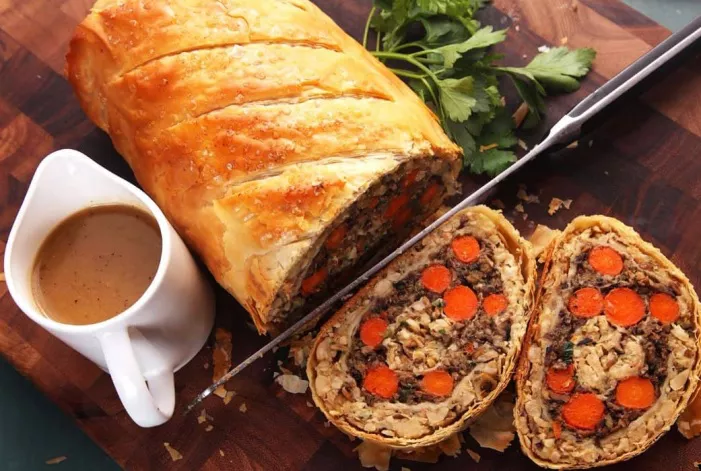Zinc, a vital trace element, plays a crucial role in maintaining optimal health and well-being. As an essential component for numerous physiological processes, zinc contributes to immune function, wound healing, and DNA synthesis. While supplementation is an option, obtaining zinc through a well-balanced diet is often the preferred method for ensuring adequate intake. In this article, we explore the top 10 foods high in zinc, offering a comprehensive guide to help you harness the benefits of this essential mineral.
Top 10 Foods Rich in this Essential Mineral
Oysters: The Zinc Powerhouse
When it comes to zinc-rich foods, oysters reign supreme. Renowned for their unparalleled zinc content, these shellfish are a nutritional treasure. Zinc plays a pivotal role in immune system function, and the abundance of this mineral in oysters makes them an excellent choice for supporting overall health. Including oysters in your diet provides a delicious way to meet your daily zinc requirements while savoring a culinary delicacy.
Red Meat: A Protein-Packed Source of Zinc
Zinc and red meat go hand in hand, as this nutrient is abundantly present in various meat cuts. Beef, lamb, and pork are not only excellent sources of high-quality protein but also rich reservoirs of zinc. Ensuring the inclusion of lean cuts in your diet can help meet zinc requirements while providing essential amino acids crucial for muscle repair and growth.
Pumpkin Seeds: Tiny Powerhouses of Zinc
For a plant-based zinc boost, look no further than pumpkin seeds. Also known as pepitas, these tiny powerhouses pack a punch when it comes to zinc content. Incorporating pumpkin seeds into your diet offers a convenient and flavorful way to increase zinc intake. These seeds can be sprinkled on salads, and yogurt, or enjoyed as a standalone snack, making them a versatile addition to your daily nutrition.
Legumes: Zinc-Rich Plant-Based Options
Zinc isn’t exclusive to animal products; legumes, such as chickpeas, lentils, and beans, also boast substantial zinc content. Including legumes in your diet not only provides a plant-based protein source but also contributes to meeting your zinc requirements. This is especially crucial for individuals following vegetarian or vegan lifestyles, where obtaining zinc from plant sources is paramount.
Dairy: A Balanced Source of Zinc
Dairy products, including milk, cheese, and yogurt, offer a balanced source of zinc alongside other essential nutrients. Zinc plays a vital role in the synthesis of proteins and enzymes, contributing to overall metabolic function. Integrating dairy into your diet provides not only a tasty way to meet your zinc needs but also ensures a wholesome package of calcium, vitamin D, and other essential minerals.
Chicken: Lean Protein with Zinc
Chicken, a lean and versatile meat, stands out not only for its protein content but also for its zinc contribution. Incorporating chicken into your meals provides a lean protein source that aligns with a balanced diet. Whether grilled, roasted, or added to salads, chicken serves as a delicious and zinc-rich option for those seeking variety in their dietary choices.
Nuts: Zinc in a Nutshell
Nuts, such as cashews, almonds, and pine nuts, offer a substantial dose of zinc along with healthy fats. Including a variety of nuts in your diet not only supports zinc intake but also provides an array of micronutrients beneficial for heart health and cognitive function. Snacking on nuts or adding them to dishes can be a convenient way to enhance your zinc levels.
Eggs: Versatile and Zinc-Rich
Eggs, a breakfast staple and versatile ingredient, are not only a great source of high-quality protein but also contain essential minerals, including zinc. Whether enjoyed as scrambled, boiled, or in various culinary preparations, eggs make for a convenient and accessible option to boost zinc intake while providing a range of other nutrients vital for overall health.
Fortified Foods: Enhancing Zinc Intake
In addition to naturally occurring sources, fortified foods contribute significantly to meeting zinc requirements. Cereals, bread, and certain beverages are often fortified with zinc, offering an easy way to ensure adequate intake. Checking food labels for zinc content can guide you in making informed choices to enhance your overall nutritional profile.
Seafood Beyond Oysters: Diverse Sources of Zinc
While oysters take the lead in zinc content among seafood, other varieties also contribute to meeting your zinc needs. Crab, lobster, and shrimp, for example, offer substantial amounts of this essential mineral. Including a variety of seafood in your diet not only diversifies your nutrient intake but also adds a flavorful touch to your meals.
Conclusion:
In conclusion, ensuring an adequate intake of zinc is vital for maintaining optimal health, supporting immune function, and promoting overall well-being. By incorporating a variety of zinc-rich foods into your diet, you can harness the benefits of this essential mineral while enjoying a diverse and flavorful range of options. Whether you prefer animal or plant-based sources, the key is to create a well-balanced diet that meets your nutritional needs. Make zinc a priority in your daily meals, and unlock the potential of this essential mineral for a healthier and more vibrant life.
























